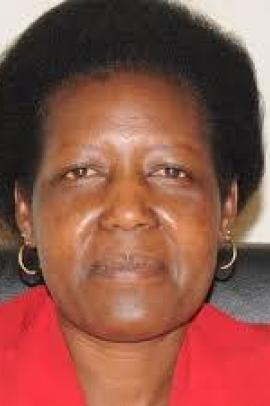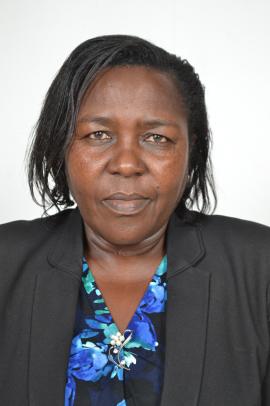Milestones of the Campus
For the almost four years of its existence, the Campus has carried out its mandate effectively despite the usual institutional challenges of scarce resources and resistance to new ideas. The notable achievements are:
Administrative
- Development of an ODeL Policy in 2017
- Accreditation of ODeL by Commission for University Education by implementing all the 38 standards in Schedule 4 of the CUE Standards and Guidelines in March 2018
- Adopting a business model and a policy that guided the sustainability of its learning centres from 2017 that saw reduction of staff on contract by 25% in 2018 and closure of non-performing centres from nineteen (19) to twelve (12) before the Covid19 crisis in March 2020.
- Performance Contracting is signed annually between the VC and the campus and cascaded to all Units including Learning Centres. The campus has always achieved its targets
- Participation in the strategic plan of 2018-2023 and inclusion of ODeL targets as a mode of delivery in teaching and learning is demonstration of the strategic importance of this function in the University.
Teaching and Learning
- Introduction of a new Learning Management System (LMS) at no cost to the University by installing and customizing MOODLE which is an open source software used by more than 50% of institutions globally
- Build capacity for courseware development in all Colleges through training
- Developed and converted study materials into digital materials available to students in the LMS
- Provision of learner support to ODeL students and development of ODeL Information Handbooks for students, tutors and staff.
- The Units that were integrated to form ODeL Campus included the former School of Continuing and Distance Education. The School has continued to admit students. From 2017 to present it has generated an average of more than KShs. 550m. annually (1.650 billion in 3 years) in tuition fees. It also plays the role of a model school where the students who are all on ODeL mode of learning are used as the testing ground for new innovations and technologies. This was evident during the Covid-19 pandemic.
Transition to online learning
During the Covid-19 crisis, face to face learning stopped, the Campus was instrumental in the transition to online learning. The long experience and the adoption of teaching and learning technologies overtime made it easy to transition to online learning using the existing MOODLE based Learning Management System where digital content is hosted. The University was able to respond to the current crisis by tapping into its existing investment in ODeL. In March 2020, ODeL Campus and the ICT Centre teamed up to provide a solution that involved training staff and students to enable them move their teaching and learning to online platforms. The activities that have been ongoing to support this transition are:
- Capacity Building for Faculty in use of eLearning Tools: ODeL Campus and ICT Centre trained the teaching staff in the use of both synchronous and asynchronous learning tools to connect with students during this period.
- Capacity Building for students in use of eLearning Tools: Students were trained on how to access and navigate the Learning Management System, and interact with the content and the tutors. The students were also introduced to the available synchronous and asynchronous learning tools such as google meet and google classroom and Moodle LMS. Recorded video clips were made available to students with sessions on introduction to Google Meet, Google Classroom and on how to download and upload assignments on google class. These were made available at http://eclass.uonbi.ac.ke/course/view.php?id=813
- Tutorial and Learner Support for learners: Tutorial and learner support services for students are provided online by lecturers, administrative and technical staff. Learning Centre Coordinators located in Kisumu, Mombasa, Nairobi, Nyeri, Kisii, Meru, Eldoret, Bungoma, Kitale, Machakos and Isiolo provided support to students from their regions.
- Courseware development and production: The ODeL Campus has continued to support faculty to develop and finalize courseware development. Courseware for select programmes is available on the LMS while faculty is being supported by ODeL instructional designers to develop more content for the LMS.
- Thesis/Project/dissertation supervision: The University Senate approved a procedure for examining theses online. This will ensure that candidates who are ready are not delayed for graduation. The supervision of students is continuing through the online platforms such as email and video conferencing platforms as has been the case.
- Online Examinations in May/June/July/August 2020: The campus developed a training curriculum for training staff and students on how to conduct online examinations. Staff in ODeL trained other departments notably School of Law, school of Journalism, most departments in CAE, CHS and CPBS on how to set open book examinations, load examination questions onto the e-class and retrieve for marking. They also carried out rehearsals for the students and trained the college-based ICT and administrative staff to provide support.
- Orientation of first year students in August/September 2020: The Campus provided orientation on how to learn online to all new students joining the University in September 2020. The team prepared a curriculum, developed content including videos and carried out the training using Microsoft Teams. This enabled the students to take up their studies smoothly.
- Online surveys on preparedness for online learning and examination: The campus undertook surveys to establish student readiness and uptake of online learning. The results were analysed and report shared with management for decision making.
Collaborations and Partnerships
Through initiatives to ensure sustainability, the Campus has collaborated with both internal and external partners to reduce costs and ensure quality service delivery. These initiatives include partnership with UNITID which paid for development of study materials using its own resources, the Association of Commonwealth Universities (ACU) has provided six (6) free learning modules to the University, saving additional costs of development and production. The University, through ODeL Campus also entered into partnership with the County Government of Nyandarua to offer Short lifelong learning courses as well as certificate courses to the people of Nyandarua County. The County Government catered for all expenses and sponsored the first cohort of students. In 2019/2020, the University entered into agreement with a Chinese company and UNESCO-ICHE to install smart classrooms in Nairobi, Mombasa and Kisumu. Through another agreement with the International Institute of Online Education (IIOE) they have trained about 100 University teaching staff on online learning as part of a global Covid-19 rapid Response Training Series.





